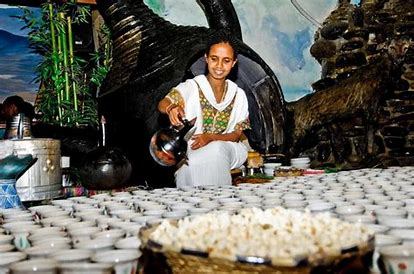Ethiopian Teff: The Ancient Grain Shaping Culture, Nutrition, and Economy

1. Historical and Cultural Significance Teff ( Eragrostis tef ), the world’s smallest grain, has been cultivated in Ethiopia for over 6,000 years, with domestication traced to 4000–1000 BC in the Ethiopian Highlands. Its name derives from the Amharic word “teffa,” meaning “lost,” reflecting its tiny size (1 mm in diameter). As the cornerstone of Ethiopian cuisine, teff is the primary ingredient in injera , a sourdough flatbread consumed daily by over 50 million Ethiopians. Beyond sustenance, teff is deeply woven into Ethiopia’s cultural identity, symbolizing heritage and community. 2. Nutritional Powerhouse Teff’s nutritional profile rivals that of quinoa and other superfoods. It is gluten-free and rich in essential amino acids (especially lysine), fiber, calcium, iron, and polyphenols. A single serving provides 200–600 kcal daily, making it a critical energy source in both rural and urban areas. Its slow-digesting carbohydrates and high mineral content have fueled its glob...
